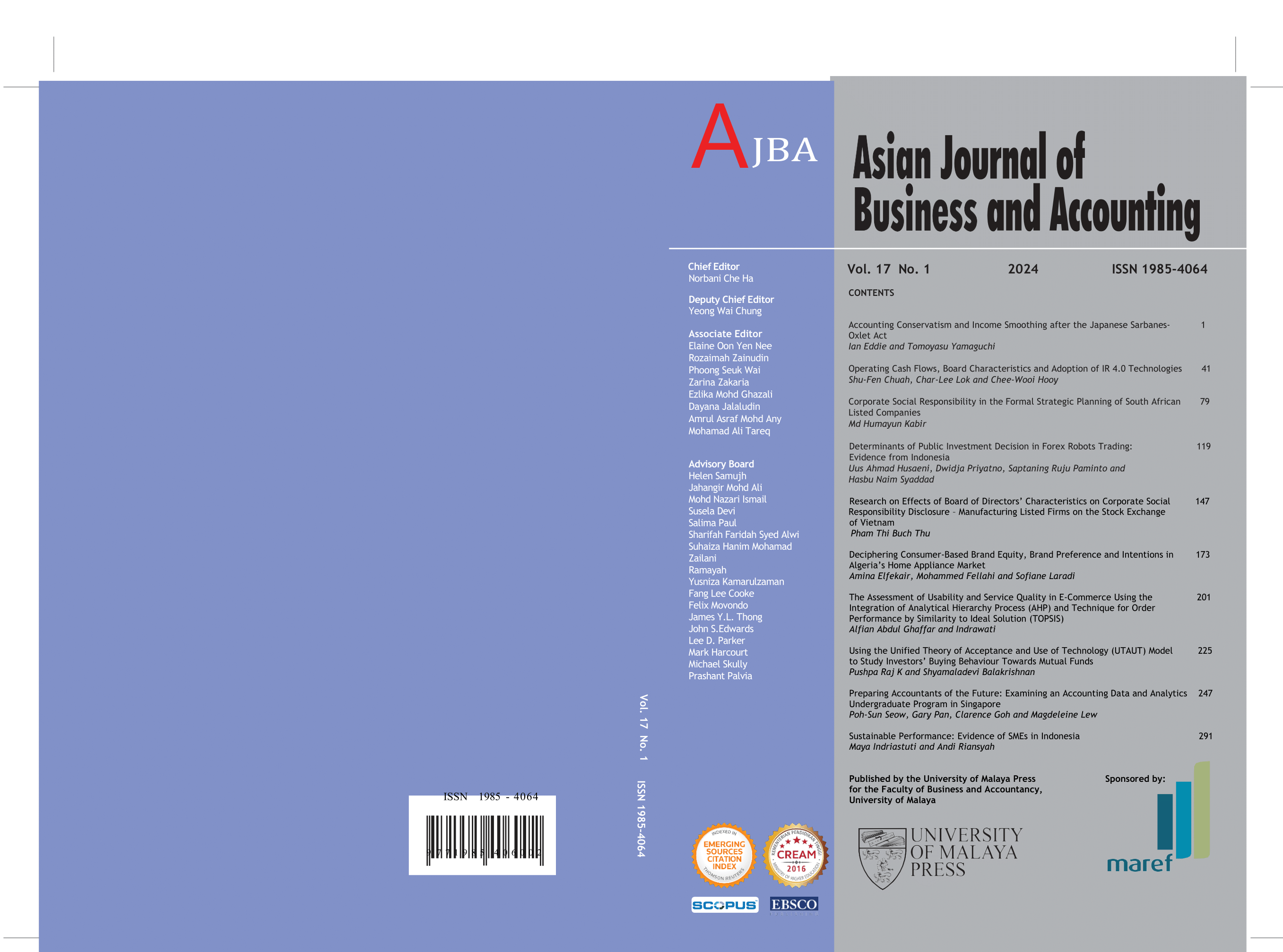Operating Cash Flows, Board Characteristics and Adoption of IR 4.0 Technologies
Main Article Content
Abstract
Manuscript type: Research paper
Research aims: This study examines the effect of operating cash flows (OCF) on firm innovation, as represented by the adoption of fourth industrial revolution (IR4.0) technologies. Board characteristics which act as the corporate governance mechanisms, are introduced as the moderators.
Design/methodology/approach: The sample of the study consists of 954 publicly listed firms traded on Bursa Malaysia in 2019. The logistic regression model is employed.
Research findings: Our study found that increasing OCF encourages firm innovation. Board size and board independence are positive moderators, while multiple directorships and busy boards are negative. Chairman-CEO duality is not a significant moderator but has a direct negative impact on firm innovation.
Theoretical contribution/originality: This study proposed that the adoption of IR4.0 technologies could be observed via (i) the hiring of key personnel with IR4.0 experience, (ii) the appointment of a chief information officer (CIO), (iii) the establishment of the technology committee, and (iv) the acquisition of IR4.0 technology. The positive moderating effects of board size and independence indicate that the board of directors is a crucial resource that connects the firms with external contingencies (following resource dependence theory). In contrast, multiple directorships and busy boards are negative moderators, highlighting the importance of effective board monitoring to alleviate agency costs and improve firm innovation (following agency theory).
Practitioner/policy implications: This study reveals approaches firms could undertake to welcome IR4.0 and improve firms’ corporate governance policies.
Research limitation: It is challenging to quantify firm innovation. The mentioned approaches may only partially reflect the adoption of IR4.0 technologies of the firms.
